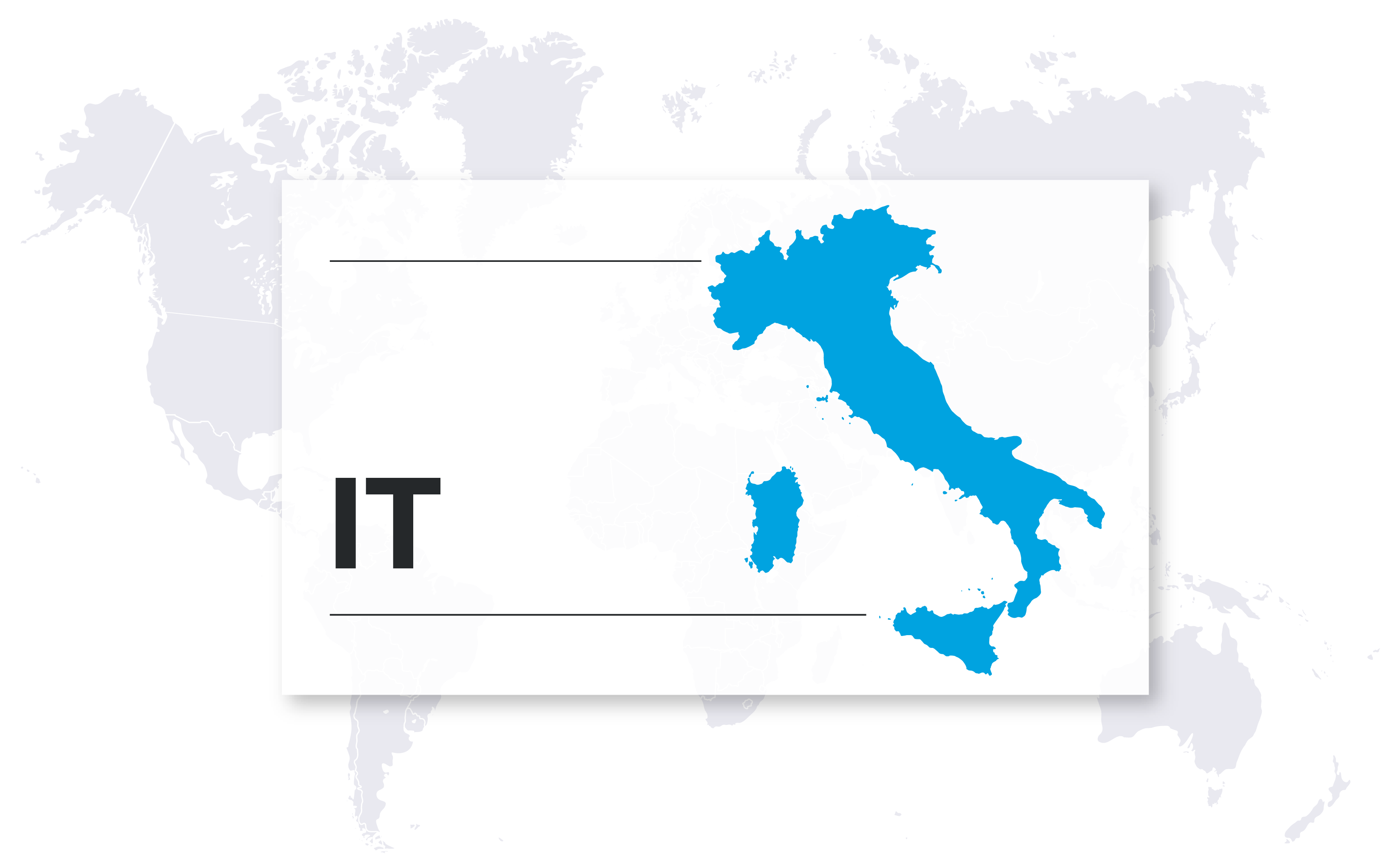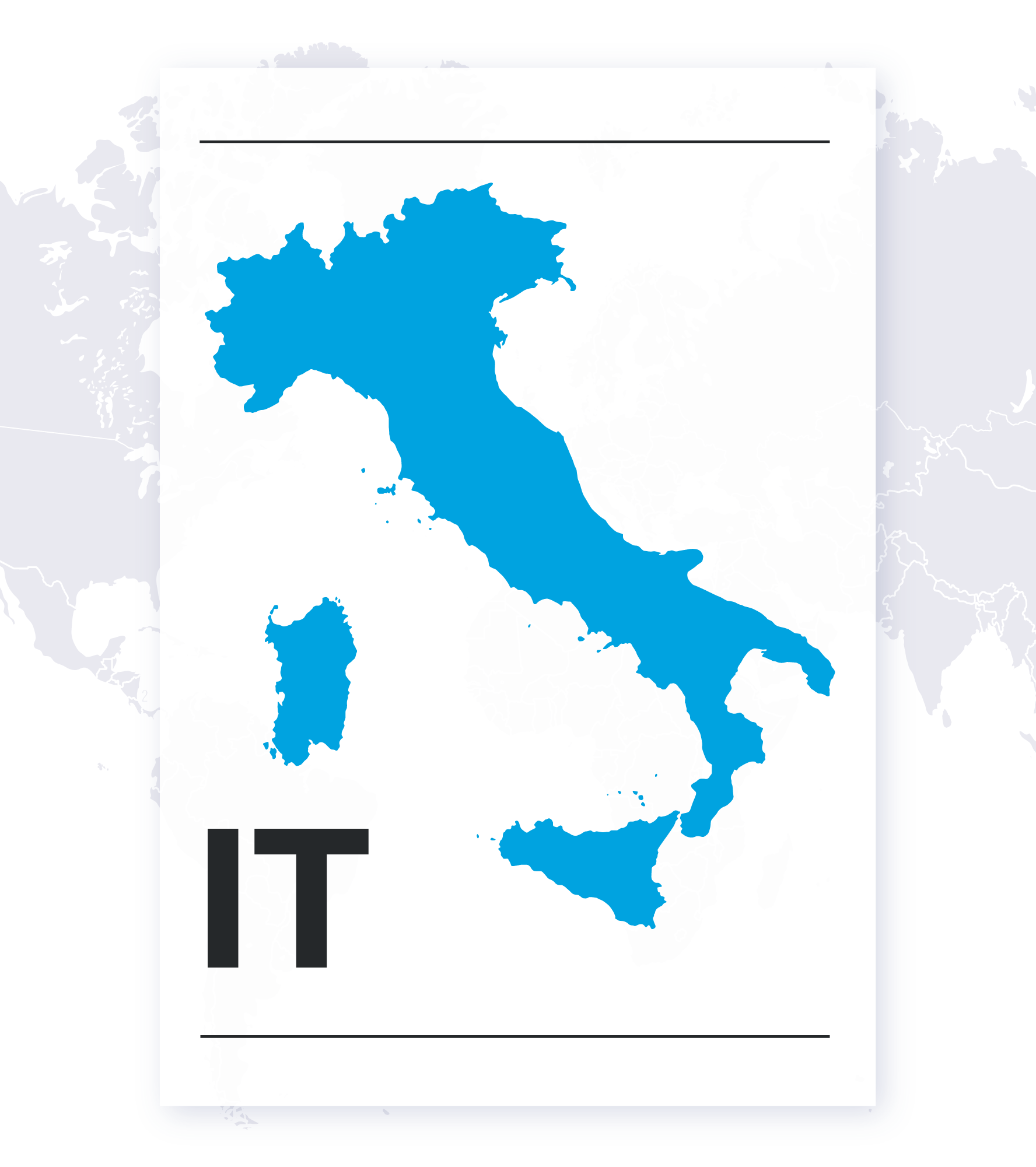Italy pay data reporting law guide


Introduction
On Dec. 3, 2021, Italy introduced a new equal pay law, Law 162/2021, amending its Equal Opportunity Code Legislative Decree 198/2006.
Private and public Italian companies with 50 or more employees are required to publish an equality report every two years. Companies with fewer than 50 employees can voluntarily prepare a report.
Employers that submit the equality report and meet certain gender criteria can apply for a Gender Equality Certificate
Contact us
Italy Reporting Requirements
Who Needs to Report?
Every public and private employer with 50 or more employees must comply with the law.
What to Report?
Equality reports must provide the following data:
- Overall numbers of female and male workers.
- Difference in starting salaries of workers by gender.
- Professional category and job performed by each employee.
- Details of full-time and part-time contracts.
- Analysis of wages (both base salary and total compensation) and the differences in benefits.
- Employee data on new hires, promotions, transfers, employee training, and terminations throughout the year.
In addition to detailed employee data, the equality report requires information about general employer policies and procedures, including:
- Information and data on selection processes in the hiring phase.
- Recruitment processes.
- Procedures used for access to professional and managerial training.
- Tools and measures made available to promote work-life balance.
- The presence of company policies to ensure an inclusive and respectful work environment.
- The criteria adopted for career progression.
Gender Equality Certificate
Italy’s Gender Equality Certification System was introduced by The Italian National Recovery and Resilience Plan (NRRP) in 2022, and is linked to its fifth mission of Inclusion and Cohesion. Two key aims of the certificate are to reduce the gender pay gap and promote greater participation of women in the workforce.
In addition, certification recognizes companies that adopt concrete policies and measures in relation to growth opportunities in the company, equal pay for equal work, policies for managing differences in gender and maternity protection.
Six areas are used for employer assessment in relation to gender equality:
- Culture and strategy.
- Governance.
- Human Resource processes.
- Growth opportunities.
- Compensation equity by gender.
- Parental protection and work-life balance.
Each area is given a score, containing a mix of qualitative and quantitative KPIs. Companies must achieve a minimum total score of 60% to attain certification. Certificates are valid for 36 months.
In addition to reputational benefits, employers that obtain a certificate are exempt from social security contribution payments, to the value of 1% up to €50,000 annually. Companies also benefit from a bonus score for securing state aid or public funding.
Board Membership of Unlisted Companies
At least two-fifths of board membership of unlisted companies controlled by public bodies must be from the under-represented gender. Prior to the amendment, this requirement applied only to listed companies.
Where and When to Report?
Regulatory Filing
Equality reports must be submitted electronically, every two years, via the Ministry of Labor and Social Policies’ portal.
The Ministry of Labor provides a receipt for the submitted report, and publishes details of companies that have submitted, or failed to submit, their equality report.
Internal Disclosure
Employers must deliver an electronic copy of the equality report, together with the receipt, to the company’s trade union representatives by April 30 of the year following the expiry of the two-year period.
Deadlines and Cadence
Reports are due biennially by April 30 of the year following the close expiry of each two-year period, unless an extension is granted by the Ministry of Labor.
Italy Pay Transparency Requirements
There are currently no legal requirements for pay transparency in Italy.
Employment equity standards
In Italy, the principle of equal pay for equal work or work of equal value is enshrined in law. Specifically, the Constitution of the Italian Republic (Article 37) prohibits discrimination based on gender.
Italy's Equal Opportunity Code is the legal framework for gender equality, and women's empowerment. It requires equal treatment and opportunities between women and men in all fields, including employment, work, and wages.
Employers in Italy are required to ensure that their pay practices comply with these legal requirements.
The Risks of Non-Compliance
Equality reports are verified by the labor inspectorate. Employers that fail to submit their report for more than 12 months could face the suspension of employment contribution benefits for 12 months. Companies that provide incomplete or inaccurate data may incur financial penalties of between €1,000 and €5,000.
Italy's Ministry of Labor and Social Policies is responsible for enforcement of the law.
How Can Trusaic Assist with Italy Equality Report & Gender Equality Certification Compliance?
1. Comply - Use Trusaic's GPDR solution to complete required reporting by compliance deadlines:
Applicability Determination: Perform an accurate assessment of your applicability, according to jurisdictional specific definitions and regulatory frameworks so you can understand your reporting obligations across the globe.
Deadline Management: Prepare ahead of time with project timelines, timely notifications, and reminders, to keep you on track to meeting jurisdictional deadlines.
Expert Legal Guidance and Support: Benefit from the expertise of our trusted pay equity attorneys, so you understand your compliance requirements across a diverse global regulatory landscape. Receive world-class customer support, including assistance throughout the compliance process.
Streamlined Data Extraction: Collect the necessary data for analysis and submission with a simple click of a button; powered by certified data integrations with the world's largest HCM, HR and Payroll platforms, including Workday, SAP, UKG and ADP. Provide data through Trusaic's Workplace Equity platform, a SOC 2 Type II and GDPR-compliant tool for data transmission.
Data Quality Assurance: Trusaic performs data validations to ensure your collected data and information aligns with the standards and definitions provided by each jurisdiction.
Compliant Report Outputs: Take away the burden of reporting by effortlessly generating outputs containing necessary compliance information.
Reporting Checklist: Follow step-by-step guidance on where, when and how to report to any jurisdiction's regulatory body, as well as your required internal disclosure and public posting obligations.
2. Correct - Use PayParity and OpportunityParity to understand, explain and resolve pay disparities:
Risk Assessments: Stay aware of any potential exposure to any government audit or litigation. Our cross-functional team of data scientists, statisticians, and government regulatory compliance experts have rigorously worked to reverse-engineer the calculations that will be used by jurisdictions to estimate pay disparities, so you can prepare in advance.
Understand your Pay Gaps: Leverage Trusaic's pay equity software solution to explain your pay gaps so you can understand the root causes and safeguard from equal pay claims and legal action.
Resolve Pay Disparities: Make pay adjustments where applicable so you can eliminate pay disparities and show improvements in your reported pay gaps from one year to the next.
Identify Barriers to Professional Growth: Ensure workforce diversity and equity with hiring, promotion, retention, and opportunity analytics using opportunity equity software solution.
3. Communicate - Use Trusaic's Workplace Equity Solution to communicate narratives and share salary ranges with confidence:
Workplace Equity Narrative: Communicate the sources of your pay gaps, progress objectives, and corrective measures to employees and internal stakeholders with Trusaic's Workplace Equity product suite. Show data-backed progress in your pay gaps over time.
Salary Range Explainability: Use Salary Range Finder to establish and post competitive and equitable pay ranges to confidently comply with pay transparency laws.
Mitigate Risk of Recurrent Pay Disparities: Ensure new hires receive fair pay offers with the use of external labor market data and internal pay equity analytics to reduce unplanned and expensive pay remediations.
How to Prepare to Comply with the EU Directive
The EU Pay Transparency Directive was approved in 2023, establishing a clear framework for EU member states to apply the principle of equal pay for equal work or work of equal value.
EU member states have three years from June 7, 2023 to transpose the directive into law. Likely implementation dates are 2026, however, some countries may enact legislation earlier. All 27 member states are required to adopt the directive.
Employers operating in EU member states can take several preliminary steps to ensure compliance with the upcoming legislation. The EU Directive includes a requirement for a Joint Pay Assessment where pay gaps are higher than 5%. Italy's gender pay gap is estimated at 8.7%, placing employers at risk of sanctions.
Trusaic is GDPR compliant and can assist any organization in any EU state in meeting its obligations under both the EU Corporate Sustainability Reporting Directive and the EU Pay Transparency Directive.
Sign up for PayParity by August 31, 2024
and receive OpportunityParityTM at no additional cost
Sign up for PayParity by August 31, 2024 and receive OpportunityParityTM at no additional cost
